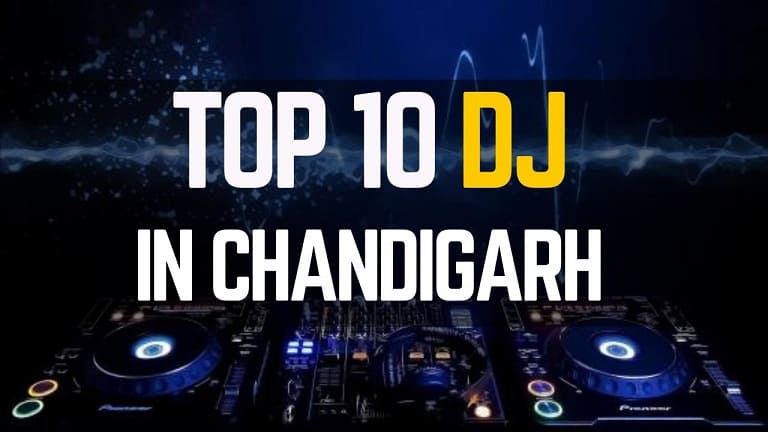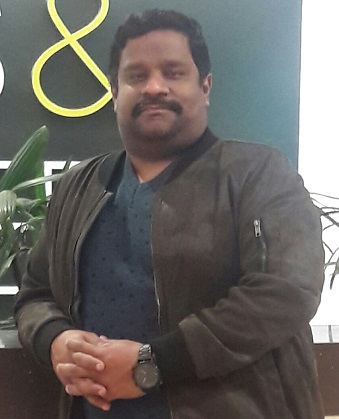Top 10 DJ in Chandigarh
DJ in Chandigarh – A DJ (Disc Jockey) is a professional who plays recorded music for an audience, often at parties, clubs, events, and radio stations. DJs blend and mix music to create a seamless flow, often adding their own style and creativity to the performance.
They use a variety of equipment like turntables, mixers, laptops, and software to curate and manipulate the music in real-time.
DJs play a crucial role in setting the mood and energy of an event, and their skill in reading the crowd and selecting appropriate music can significantly influence the success of a gathering.
They are not just limited to playing music but also act as entertainers, interacting with the crowd and maintaining the rhythm of the event.
Types of DJs
Club DJs: These DJs perform at nightclubs and bars. They play a variety of genres, including electronic dance music (EDM), hip hop, techno, house, and more. They focus on keeping the energy high and ensuring the crowd stays engaged and dancing.
Radio DJs: Radio DJs play music on radio stations. They may host shows, make announcements, interview artists, and entertain listeners. They create playlists and sometimes interact with the audience through live requests or chat.
Wedding DJs: Specializing in events like weddings, these DJs focus on playing a mix of romantic, popular, and fun songs. They often have the role of emceeing, announcing special moments such as the first dance or cake cutting.
Event DJs: Event DJs perform at various events such as corporate parties, birthdays, festivals, or special celebrations. They typically play a wide range of music, adapting to the type of event and audience.
Turntablist DJs: These DJs specialize in scratching and manipulating vinyl records. They are often skilled in hip-hop and perform intricate and creative techniques like beat juggling and scratching to create a unique live performance.
Mobile DJs: These DJs provide their services at private events like birthdays, parties, and festivals. They usually bring their own sound system, lighting, and music setup, making them versatile for different types of events.
Producer DJs: These DJs also produce their own music. They create original tracks, remixes, and edits of existing songs, adding a personal touch to their performances. Many popular EDM DJs are also music producers, creating chart-topping tracks.
Essential DJ Equipment
Turntables or CDJs: These are the most essential pieces of equipment for any DJ. Turntables are used to play vinyl records, while CDJs or digital players are used to play music from CDs or USB drives.
DJ Mixer: A DJ mixer allows the DJ to blend two or more tracks together. It lets them adjust the volume, equalize the sound, and apply effects like reverb or echo.
Headphones: DJs use headphones to preview songs before mixing them into the live performance. This ensures smooth transitions between tracks.
Speakers: High-quality speakers are essential for creating clear and powerful sound at live events or in the club.
Laptop and DJ Software: Many modern DJs use laptops with DJ software like Serato, Traktor, or Rekordbox to manage their music library and control the music mix digitally.
Lighting and Effects: DJs often incorporate lighting systems and special effects like smoke machines to enhance the experience for the audience. The lighting creates a visually stimulating atmosphere that complements the music.
Microphone: For event DJs, a microphone is important for making announcements, introductions, and engaging with the audience.
DJ Skills
Beatmatching: One of the fundamental skills for any DJ is the ability to match the beats of two songs so that they flow seamlessly together. Beatmatching is done manually with vinyl records or digitally with DJ software.
Mixing: DJs blend multiple tracks to create a continuous set, often layering sounds and effects to keep the energy consistent.
Crowd Reading: A great DJ knows how to read the crowd and adjust the music accordingly. This includes recognizing when to increase or decrease the tempo, switch genres, or play crowd favorites.
Song Selection: DJs must have an extensive knowledge of music and the ability to choose songs that suit the mood of the crowd and event. They should be able to adjust their playlist based on the crowd’s energy.
Technical Know-How: DJs need to understand their equipment thoroughly, whether it’s hardware like turntables or mixers, or software like Serato or Traktor. They also need to troubleshoot technical issues that may arise during their performance.
Creativity and Flair: A skilled DJ can add their own creative flair by remixing songs on the fly, creating mashups, or using effects like filters, delays, and reverbs to enhance the music.
DJing at Events
DJs are often the centerpiece of any event, providing the soundtrack for celebrations, parties, and gatherings. Their job goes beyond just playing songs—they set the mood, guide the flow of the event, and keep the crowd entertained. Some key elements to consider for event DJs include:
Playlists and Requests: While DJs usually create a set list, they often take requests from the audience. A good DJ will integrate these requests into their set without disrupting the overall vibe.
Event Timing: DJs must be aware of event timings—ensuring that the right music plays at the right moments, like during speeches, entrances, dances, or key transitions.
Emceeing: Some DJs also take on the role of emcee, making announcements and guiding the event along. This is especially common in weddings and corporate events.
How to Become a DJ?
Learn the Basics: Start by learning the fundamentals of DJing—how to use turntables, mixers, and DJ software. There are plenty of online tutorials and DJ schools where you can start building your skills.
Practice: DJing is a skill that requires practice. Spend time experimenting with different songs, mixing techniques, and transitions to improve your performance.
Invest in Equipment: You don’t need to start with the most expensive equipment, but investing in a basic DJ setup (turntables, mixer, headphones) is essential to developing your skills.
Create a Playlist or Set: Build a playlist or DJ set that showcases your style. Record it, and start sharing it with friends, on social media, or even through online platforms like SoundCloud.
Get Gigs: Start by DJing small parties or local clubs to gain experience. As you build your reputation, you can move on to larger events and festivals.
Stay Current: Keep up with the latest music trends and equipment. A great DJ knows what’s hot and what works with different audiences, staying ahead of the curve.
A DJ’s job is not just about playing music—it’s about creating an experience. Whether it’s at a nightclub, a wedding, or a corporate event, a good DJ can transform an event into a memorable celebration.
DJs are skilled artists who combine technical expertise, musical knowledge, and performance energy to keep audiences entertained.
If you’re interested in becoming a DJ, it’s all about practicing your craft, understanding your audience, and continually evolving with the music scene.
FAQ
What is the DJ permission time in Chandigarh?
In Chandigarh, noise limits vary by area and time. From 6 am to 10 pm, the permissible noise levels are:
- Industrial Area: 75dB
- Commercial Area: 65dB
- Residential Area: 55dB
- Silence Zone: 50dB
These regulations balance entertainment needs with residents’ right to peace. Always check local guidelines for specific event permissions.
Are DJs in demand?
DJs are increasingly in demand due to the growing popularity of music events, festivals, and parties worldwide. The expansion of the entertainment industry and increased disposable income have boosted opportunities for DJs. T
heir ability to create unique musical experiences makes them valuable in various settings, from clubs to corporate events.
What does DJ do?
DJs play and mix recorded music at various events, including clubs, parties, festivals, and private functions. They use specialized equipment to blend tracks seamlessly, creating a continuous music flow.
DJs often read the crowd’s energy, selecting songs to maintain or elevate the atmosphere. Many also produce their music or remixes.
How did DJing start?
DJing originated in 1943 when radio DJ Jimmy Savile hosted the world’s first DJ dance party in Otley, England. He played jazz records in a function room, laying the foundation for modern DJ culture.
This innovative approach to music playback sparked a revolution in how people experienced and interacted with recorded music.
What does the DJ role do?
A DJ’s role involves selecting and playing recorded music for an audience. This can occur in radio stations, nightclubs, weddings, or other events. DJs curate music to suit the event’s mood, mix tracks smoothly, and often interact with the crowd to enhance the overall experience.
What is DJ’s complete form?
DJ stands for Disc Jockey. This term refers to a person who plays recorded music for an audience. DJs often mix popular songs, add effects, or create new versions by blending tracks. They work in various settings, from radio stations to clubs, and play a crucial role in shaping musical experiences.
Do DJs pay for songs?
DJs are required to legally acquire the music they play. In many countries, venues must obtain licenses from Performing Rights Organizations (PROs) like ASCAP or BMI for public music performance.
To avoid copyright infringement, DJs should ensure their music is legally sourced and appropriate for public performance.
What is DJ music called?
DJ music is often referred to as Electronic Dance Music (EDM). This broad category encompasses various genres designed for nightclubs, raves, and festivals. EDM is typically produced for DJ playback, allowing seamless track transitions. Popular EDM subgenres include house, techno, trance, and dubstep.
Is DJ legal in India?
In India, playing DJ music or using loudspeakers requires prior permission, even between 6 am and 10 pm, and must adhere to volume limits.
Local police departments are instructed to enforce these regulations. Checking and complying with local laws before organizing events featuring DJs or loud music is crucial.
How do DJs get money?
DJs earn money through various means:
- Live performances at clubs, festivals, and private events
- Producing and selling original music or remixes
- Residencies at venues
- Radio shows or podcasts
- Merchandise sales
- Teaching DJ skills
Brand partnerships and sponsorships Live performances often provide the most accessible and enjoyable income source for DJs.
Thanks for visiting – Chandigarh News



